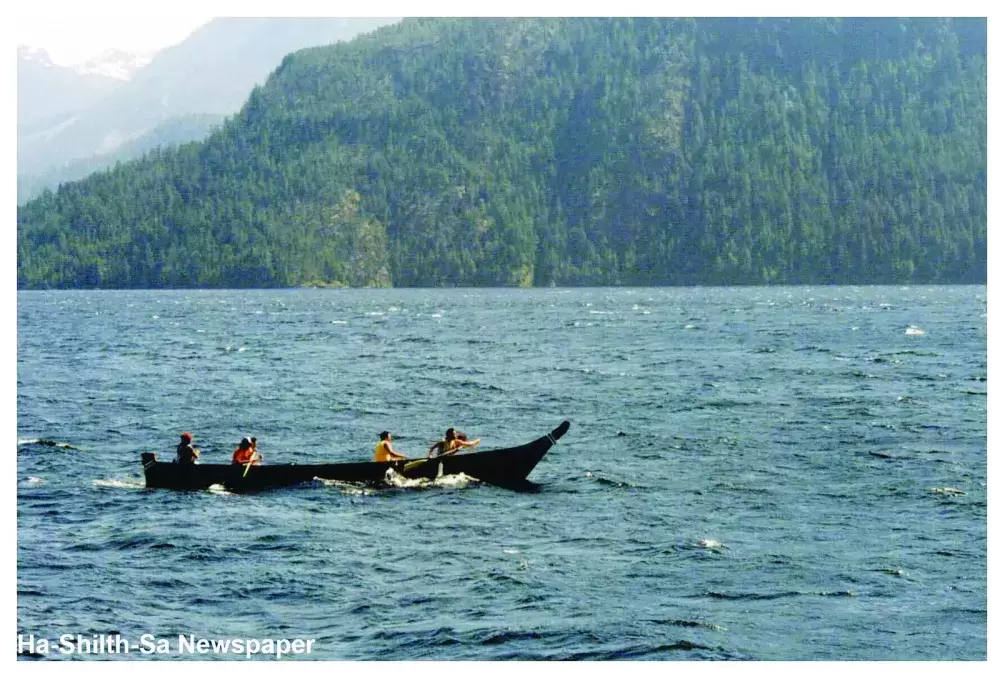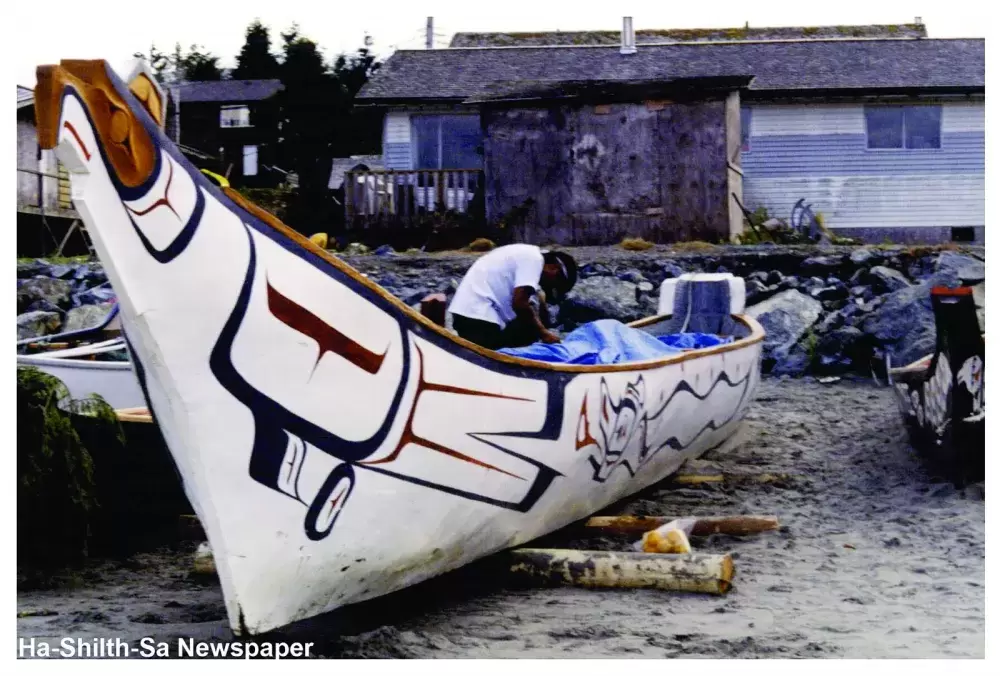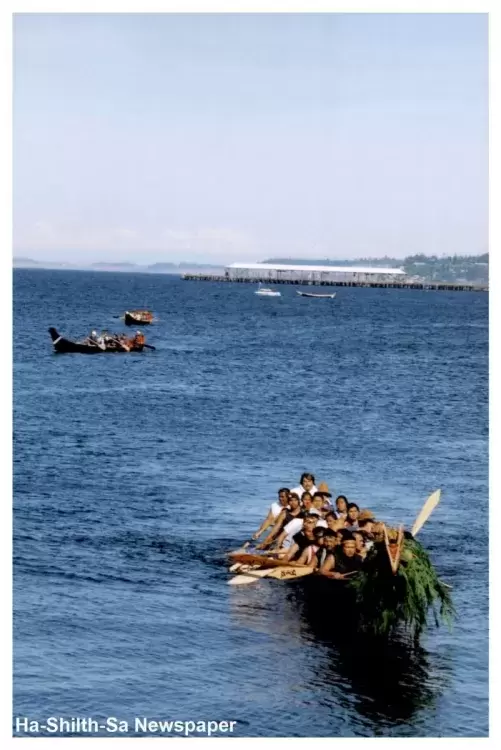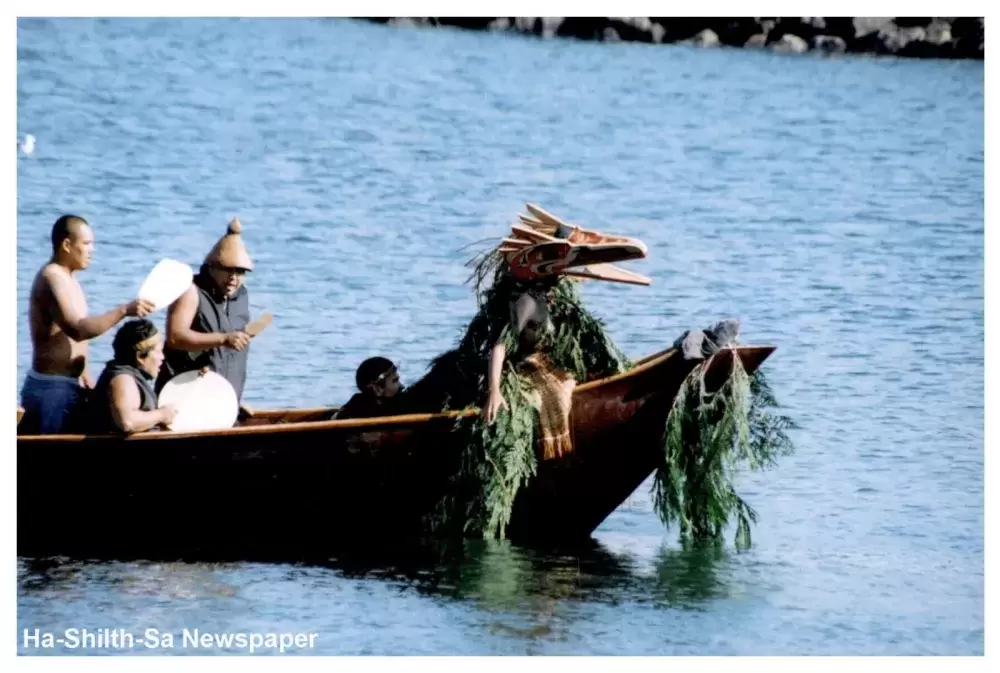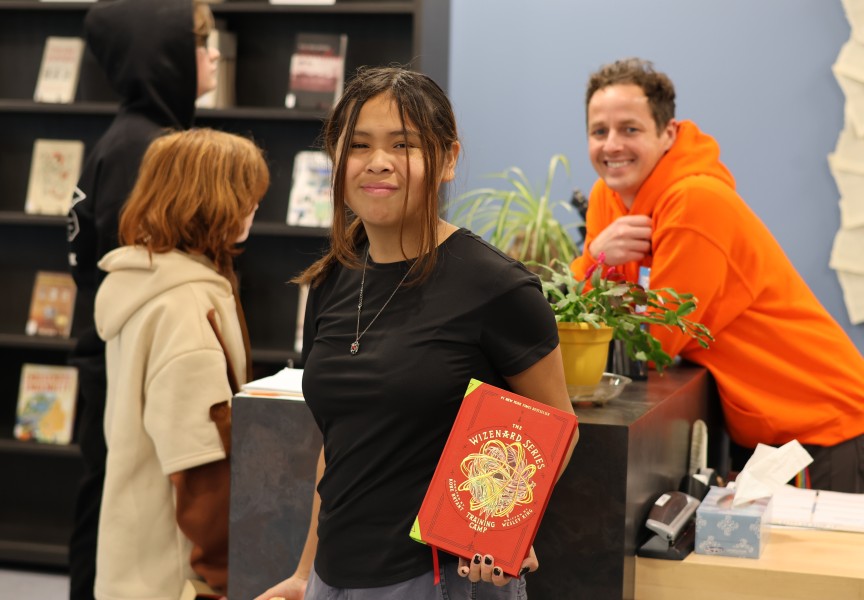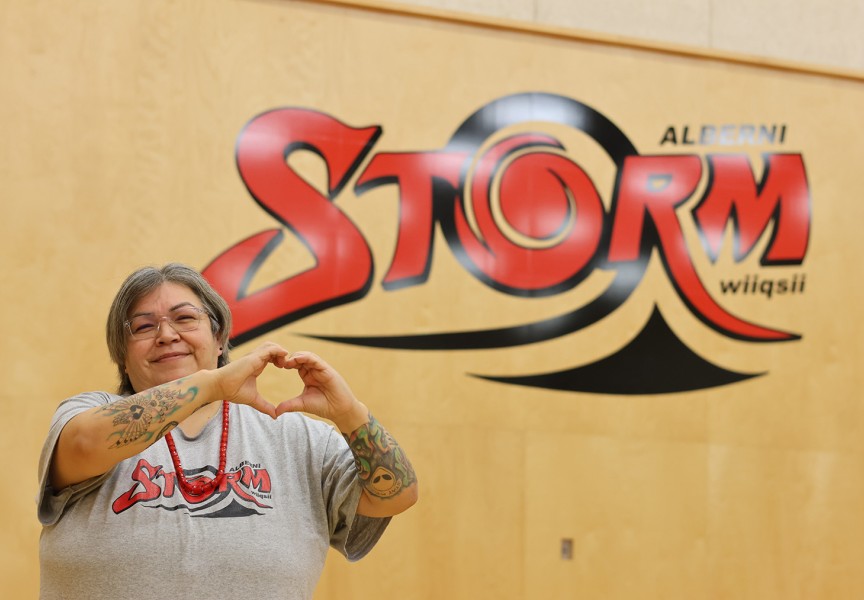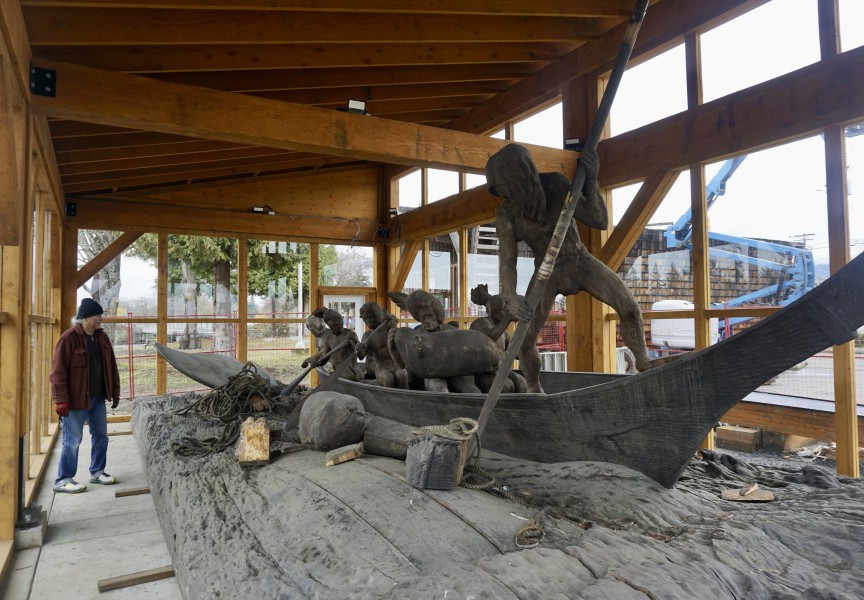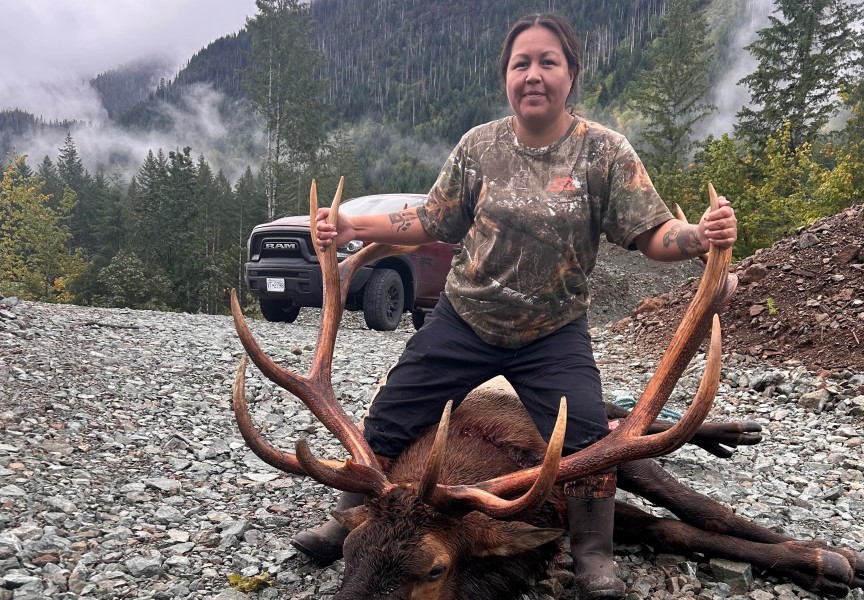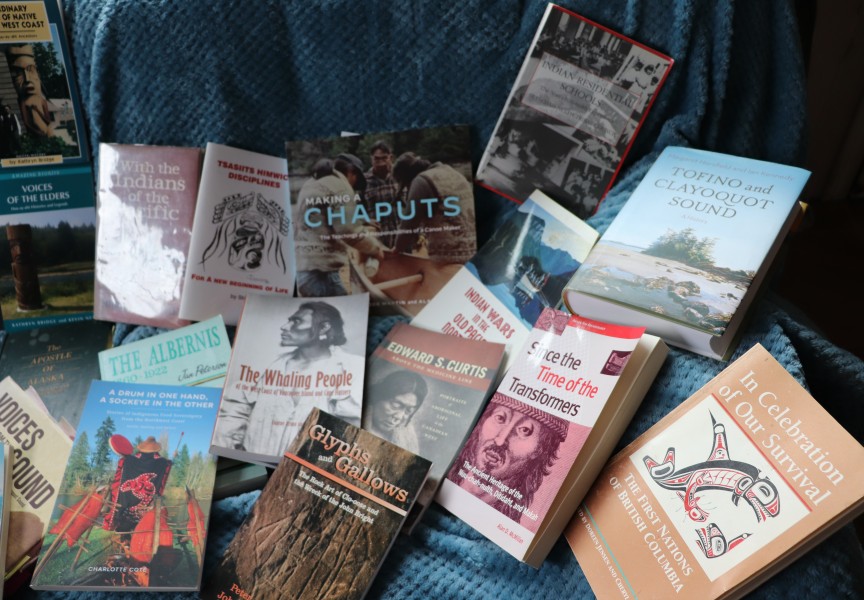A new book showcasing the historical views and development of canoes as well as contemporary stories featuring canoes has been published. Alan L. Hoover, a retired curator and manager at the Royal British Columbia Museum co-authored Northwest Coast Canoes of Indigenous North America, which was released in December 2020.
Hoover collaborated on the book with retired researcher and author Eugene Arima, who wrote A Report on A West Coast Whaling Canoe Reconstructed at Port Renfrew, B.C. (1975) and The Whaling People of Vancouver Island and Cape Flattery (2011)
Hoover says he began working at RBC Museum in 1968 and has always been interested in northwest coast history, culture and artifacts.
He gained interest in canoes through is work with Eugene Arima.
“He worked with Chief Charlie Jones, Queesto, in Port Renfrew,” said Hoover.
Back in the early 1970s, Arima lived among the Pacheedaht for a few months while building a traditional whaling canoe under the tutelage of Queesto, who was Pacheedaht’s Tyee Ha’wilth (head chief) and, at that time, was over the age of 100.
Following the canoe project, Arima published a report. The canoe they made is now on display at Kwisitis Visitor Center (formerly Wickaninnish Visitor Centre) near Ucluelet.
In 1983 Arima wrote The West Coast People: The Nootka of Vancouver Island and Cape Flattery. More than two decades later Arima approached Hoover with the idea to write a revision of his 1983 book.
“We worked together putting out a second edition. He wanted to update it, so that’s how I got involved,” said Hoover.
The revised book was re-named The Whaling People of the West Coast of Vancouver Island and Cape Flattery, released in 2011 and published by the RBC Museum.
Arima has extensive knowledge about west coast style canoes. Besides his work on the Pacheedaht vessel, Arima was involved in a project in Northern British Columbia.
“Eugene worked with Calvin Hunt up in Fort Rupert,” Hoover shared.
The men were recreating an old-style canoe that had sort of disappeared, according to Hoover. The style of canoe they were building was in use around time of European contact but went out of fashion.
It was this canoe story that sparked the interest in writing a book about canoes.
“We decided to add history of other canoes,” said Hoover.
The authors connected with master carver Joe Martin of Tla-o-qui-aht, who is included in the book with information and photos about steaming canoes to help shape them.
The book is filled with photographs and illustrations of the various styles of canoes found up and down the west coast. Along with historical photos, there are many from more contemporary times. There are images of canoe makers as well as events like Tribal Journeys, which has caused a resurgence in canoe culture.
Hoover says he wants to share these stories with people not only because he is a “history nerd”, but also because it is an important part of northwest coast Indigenous culture.
“Back when they were building the railway (from Victoria to northern Vancouver Island) guys were hired to paddle canoes around beneath the trestles to pick up any guys that may have fallen off the trestle,” said Hoover.
Today, traditional style canoes are used in the tourism industry.
“The tradition goes way back,” said Hoover.
He noted that for coastal people, the canoe was to First Nations what cars are to people today. The waterways were the highways.
“Some people thought canoe making disappeared, but it hasn’t, it has evolved,” said Hoover, adding that the tradition was kept alive by people like Chief Charlie Jones, and now Joe Martin as well as others.
Northwest Coast Canoes of Indigenous North America – A Historical View of Styles and Development was published by Northwest Coast Canoe Publications (www.northwestcoastcanoepublications.com )
Hoover is currently working with Joe Martin on a new book on canoe making. Work on this book has been stalled due to the COVID-19 pandemic.

